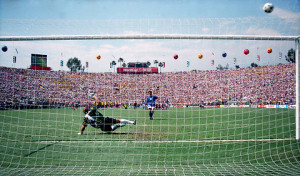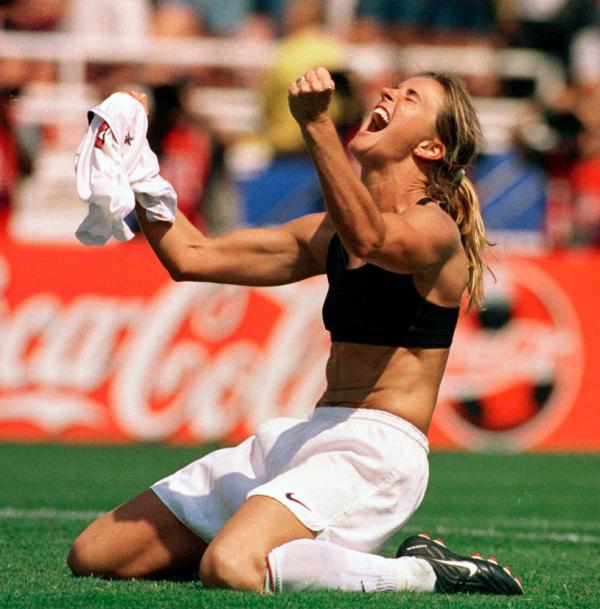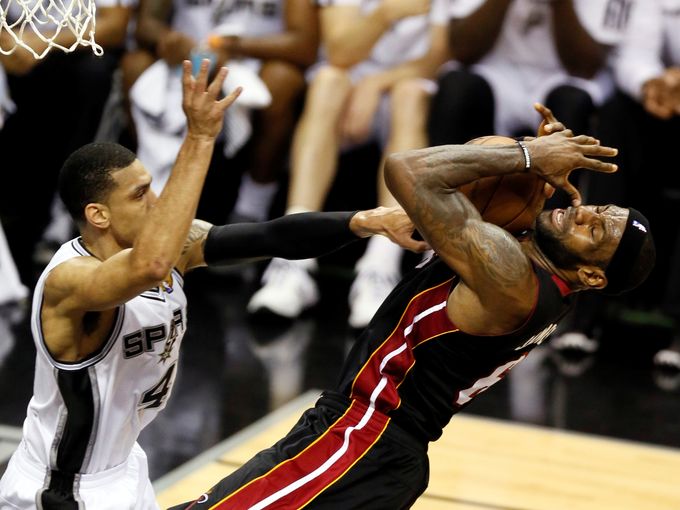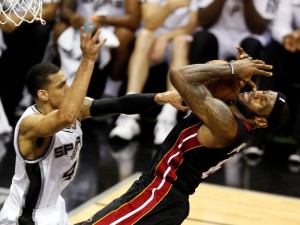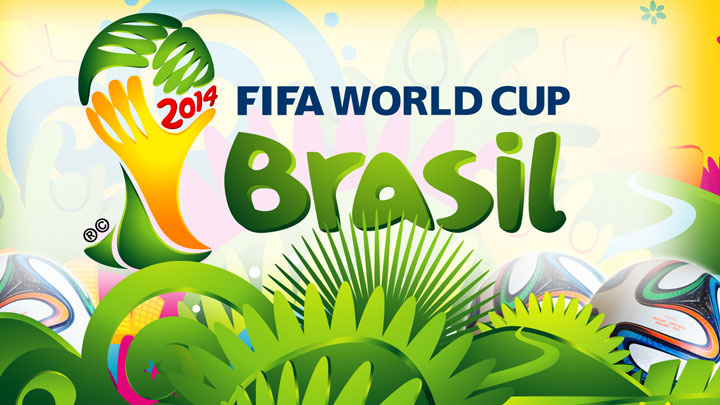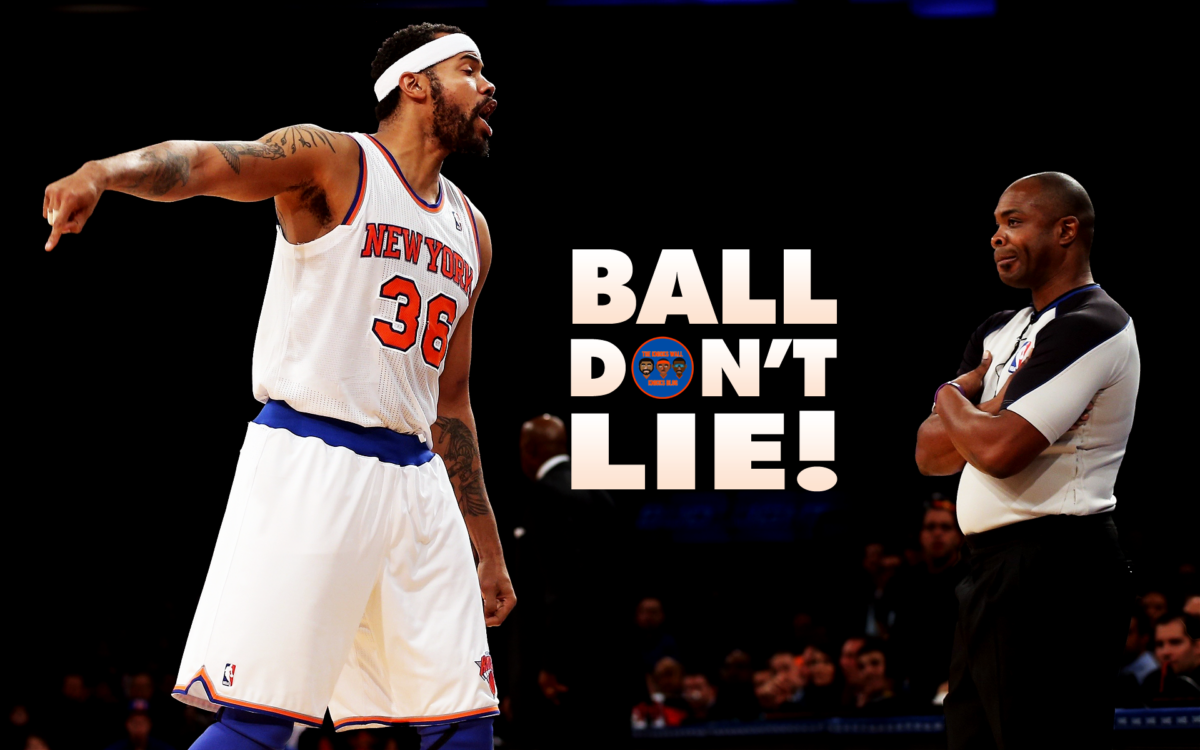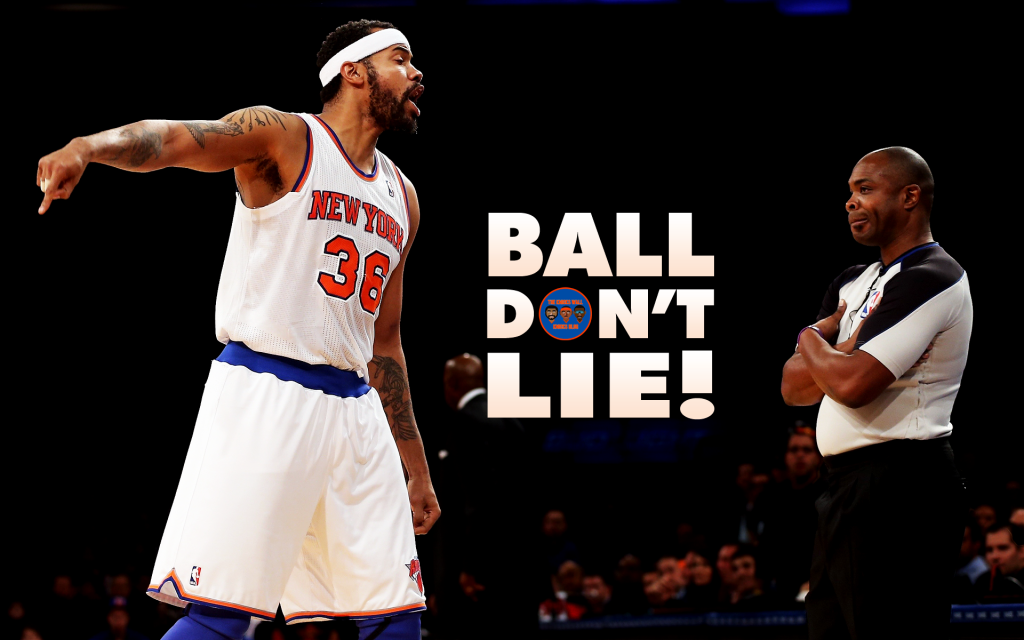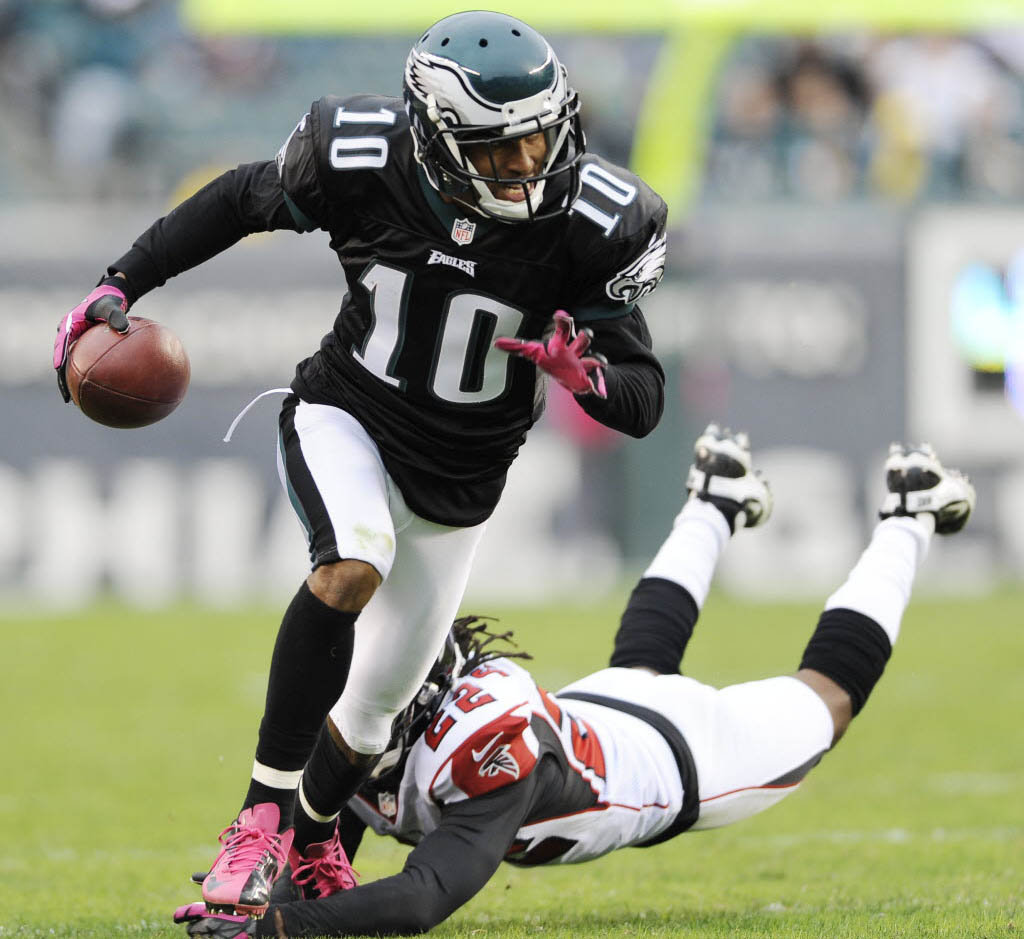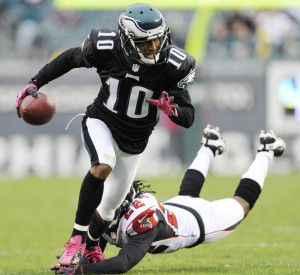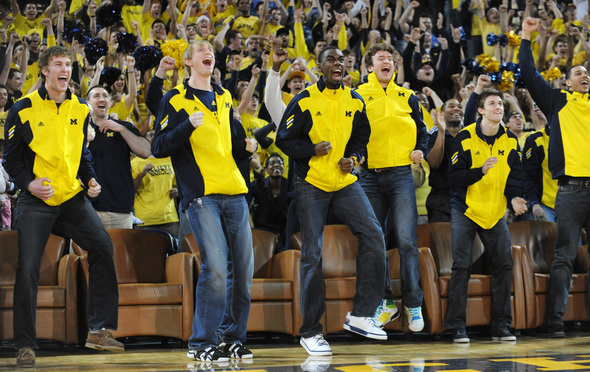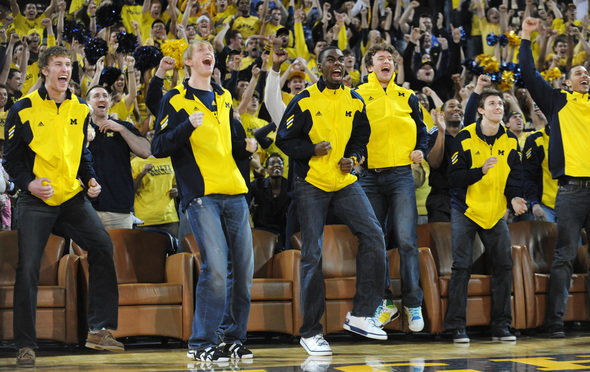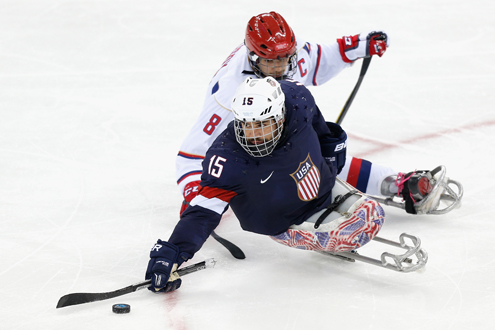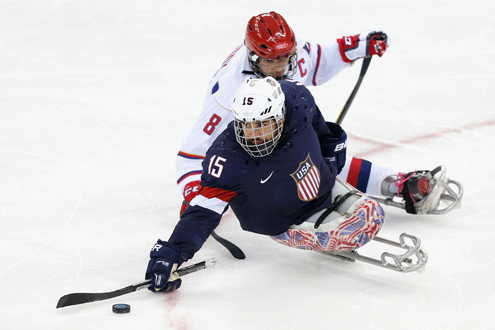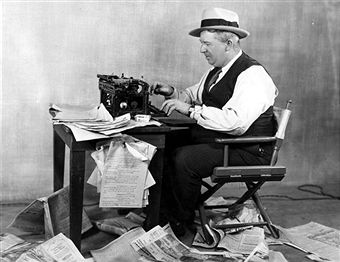As one of my oldest sports-watching-friends and a big college basketball fan, I thought Brendan Gilfillan could help me answer the question, “why is March Madness the best?” What follows is a rambling email exchange between the two of us marginally focused on that question. My writing is in italics, Brendan’s in plain text.
 — — —
— — —
Obviously it’s hard to objectively say what sporting event is the best to watch but people who love college basketball are often quite passionate in arguing that the men’s college basketball postseason tournament commonly known as March Madness, is the absolute greatest sports experience of the year. Why do you think that is?
— — —
The first four days: no matter when you turn on a TV, you’ll see hundreds of 18-22 year-olds put under an incredible amount of pressure. Needless to say, that results in some pretty incredible stuff: heartbreaking, skull-thumping mistakes, once-in-a-lifetime performances, and absolute unparalleled chaos. Because of the format, it’s the sporting playoff where sheer unpredictability reigns most supreme (the NFL comes closest, in my opinion). There are other, lesser reasons: unlike the NBA most players aren’t talented enough to score consistently, which forces coaches to use some diverse and creative offenses; and for a lot of these players, this is the end of their athletic career, which adds an additional sense of desperation.
But for me, the central reason is the sheer nuttiness that ensues when you put kids under the spotlight in a single elimination tournament many of them have been looking forward to their entire lives. It’s kind of like why the Olympics are so intense, but magnified because the sport is more accessible and easier to follow/invest in over the course of a season.
— — —
The question of unpredictability is a good one — I think we had a post answering the question “are predictable sports more popular” but I don’t think we came to any real conclusion. The NBA is known as the most predictable sport. Funny that basketball can be the most and the least predictable just at different levels. The difference has something to do with the skill and ability to withstand pressure of the players but there are some important format differences too. The college game is shorter (forty minutes instead of forty-eight,) and the shot clock is longer (35 seconds instead of 24.) This leads to lower scoring games with fewer possessions and therefore more chance for an on-average weaker team to come out victorious. The format of the playoffs (single elimination instead of a seven game series) is also a big factor in making college basketball less predictable. How do you rationalize the obsession of sports fans with determining who the best team is with an enjoyment of unpredictability which inevitably leads to a less conclusive champion?
You’re absolutely right about the first four days though. They are so exciting. The first four days of the tournament winnows the field from 64 teams to 32 and then to 16. So that’s… 40 games in four days. I remember a time when I was at work… but keeping an eye on the games on one side of my monitor… and a colleague of mine on the opposite end of the office and I let out a yell at the same time when someone hit a buzzer-beating shot to win a game. Classic moment in lost productivity. How do you think the advent of streaming games on computers and tablets has changed how people consume the tournament, especially those hectic first four days?
— — —
Do you think sports fans are obsessed with determining who the best team is? I guess every fan is after something different in sports. I’m in it for the experiences and moments, not for justice.
Although I’d argue that the best team is the team that performs best when it matters most. This is an age-old argument, but I don’t understand how you can have the best team if you lose when the stakes are the highest (even in the event of injury, horrific officiating – great teams overcome!). You may have the most talented collection of players, but whatever thing you need to put you over the top when there’s no margin for error is what makes a team the “best.” Do you (or fans you know) end up disappointed when the “wrong” team wins, assuming they don’t have a direct rooting interest in that team? I guess I can understand that…it’s just not how I experience sports.
re: streaming games – I don’t how much it’s changed it for the diehards, cause they are more likely to skip work altogether, buy a case of beer and a family-size bag of Doritos and camp out on the couch in a tee-shirt, tube socks and sweatpants(if they’re wearing pants at all), moving only to perform the most urgent bodily functions. There’s nothing nastier than the smell of an NCAA-tourney diehard on that first Sunday night. But more fans watching more games early on means they’ll be more invested in those teams as they advance. They get invested in individual players, know their stories, and ultimately end up feeling genuine disappointment/elation at their performance – feelings that are completely out of proportion to any actual impact on their own lives.
Another thing on college sports (in my experience, basketball) in general: the fun of college basketball isn’t in seeing the guys who are just stopping over on their way to the pros. The fun is in seeing a guy like Markel Starks – Georgetown’s starting point guard. I remember watching him in person his freshman year, when he only got in during garbage time. I somehow ended up sitting next to some of his friends/family – they were cheering for everything he did despite the fact that it had no impact on the outcome of the game. And he wasn’t very good then – he sat behind better players for most of his career, and spent his time getting a little better each year, without any guarantee other than his coach’s word that it’d work out.
Watching him progress over those four years – and then watching him this year, when he’s all Big East first team, when he was amazing on senior night in an upset win over Creighton that we absolutely had to have – is what college sports is all about. There’s usually guys like that on every team – guys who may or may not go pro, here or abroad – and this is their time in the spotlight.
— — —
I do think there’s some serious interest in at least the appearance of determining who the actual best team is. For evidence of this, look at the enormous mess that has been made of college football in the past twenty years in an attempt to create a post-season format that better determines the national champion. Not to pour salt in a very old wound but if the NBA was a single elimination tournament, your 76ers would have beaten the Lakers in the 2001 finals and the lasting image would have been Allen Iverson stepping over Tyrone Lue. Instead, the Lakers won the seven game series decisively 4-1. There’s truth to the narrative about players and teams playing their best when it counts but there’s a whole lot of luck involved too.
Technology has definitely changed the way even die-hard fans consume March Madness. Even the earliest streaming websites and apps allowed for the consumer to choose which game to watch. On TV, the games were only on one channel, and someone at the station would decide who saw what game and when to switch from a less competitive game to a closer one. Now I believe that every game is televised in full by CBS Sports taking over a bunch of networks in their… network. This puts the onus on the viewer just like in a streaming type situation. I have to say, I miss the more curated experience of watching whatever was on CBS the whole weekend. What do you think? Has technology made the viewing experience better or worse for you?
Great point about feeling a connection with the players. That’s something that’s more difficult to do with professional sports because the life of a millionaire professional athlete is so far from identifiable for most of us, unfortunately. Not that the life of a stud college athlete is all that different but at least many of us went to college and can identify with some of the elements (exams, hormone-driven obsession with romance, weekend drinking, etc.) of their lives. You can also identify with Starks because you went to Georgetown but for people like me whose colleges don’t have top-level basketball programs, there’s always a team to latch on to during the tournament whether it’s an exciting Cinderella story, a regional team, a friend’s alma mater, or just a team we favor for our bracket.
— — —
Red herrings, all! I think the issue with college football is that the champion is too frequently not being determined on the field, which means there can’t be any sort of justice. I also think the Lakers/Sixers argument is flawed, as much as I enjoy picturing that step-over (top 3 highlight of my sports fan existence…picturing now…that little head nod where he almost looked down, then seemed to decide Lue didn’t even warrant it). The question those teams were trying to answer was who would be best over a seven game series, not in a single elimination game. Everyone’s approach to that game changes if it’s winner take all. And as much as I love AI, I don’t think he’s able to drag that team over the hump when both Kobe and Shaq know it’s all or nothing.
The streaming thing has been net positive for me – I think anything that gives fans more agency is better. What non-fans/more casual fans need in a world with that many teams and games is help sorting through where to watch and what to watch for…not only in the beginning but potentially in real time.
Your favorite playoffs – at least I think – are the Stanley Cup playoffs, right? Is it cause the familiarity built up over seven games yields such intense/high-level play?
— — —
Hey now, “what non-fans/more casual fans need in a world with that many teams and games is help sorting through where to watch and what to watch for…” That sounds like something Dear Sports Fan should be doing! Maybe we can do that this year.
You’re right, my favorite playoffs are ones based on seven game series. It’s not so much that they are better at determining which team is better (although they are dramatically better at that) it’s more about the drama that they produce. Seven games is an eternity for two teams to play against each other at the highest level with elimination at stake. Invariably, players start to hate each other; a dirty hit in game one will be retaliated for in game five. The tactics that worked one game will be countered the following game. There’s so much more depth to watching a series than a single game. And in terms of raw excitement, every series ends with an elimination game — sometimes, in the case of game sevens — for both teams. That’s really the perfect mix, a single elimination game with six games of history before it.
— — —
Well but just as often the elimination game comes at 3-0 or 3-1 or something – there’s no guarantee of a game 7, whereas with the NCAA it’s all elimination games. I do think the seven game series is uniquely suited for hockey – it’s kind of a grind in baseball, where the strategic changes are much less interesting and teams’ retaliation is limited to pointless milling about in each other’s vicinity. Basketball is closer but you don’t necessarily see the intensity you do in hockey – or, that you saw in the NBA 30 years ago. Everyone’s competitive but you don’t get the sense that there’s a lot of hatred there.
What about Olympic hockey, though? Did you enjoy that less than the NHL playoffs cause of the format?
[some time elapses]
And now I’ve tasted my own mutton…how do I like the taste? Georgetown lost a single-elimination game in the Big East tournament to a “lesser team,” meaning they will definitely not go on to the NCAA tournament. It’s pretty disheartening. Georgetown is clearly “better” than DePaul – they’ve played and beaten better teams, have a better record, have more talent. But when it came down to a single game with real stakes, DePaul flat-out outplayed them. No excuse, no fluke, they were the better team last night.
So justice was done. The same things that plagued Georgetown all year – and put us in the position of needing this win – did us in last night. No front-line scoring cause of the suspension of Josh Smith, who was clearly way too integral to our plans for a transfer with a shaky past; offensive droughts and the occasional, incredibly poorly timed defensive lapse; and generally playing down to the level of our competition. How else to explain a season sweep to Seton Hall? A loss to Northeastern?
Sigh.
— — —
I think we’ve come full circle here. I’m sure you’ll still be able to enjoy watching March Madness starting next week. Maybe even more now that the excitement and unpredictability can’t harm your rooting interests any further.
